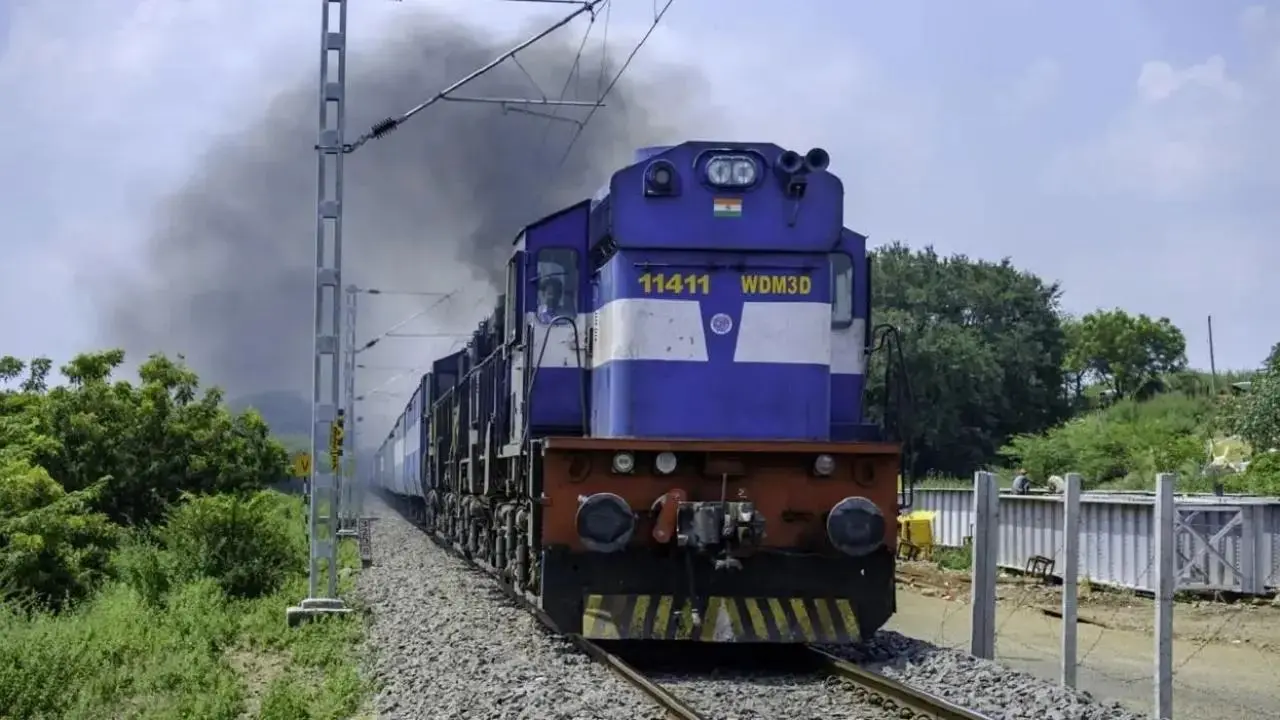Two people were killed and one injured after trespassing on railway tracks in Nashik district, the Central Railway clarified on Monday, dismissing reports that passengers had fallen from the Karmabhoomi Express.
According to the news agency PTI, the incident occurred on Saturday night between Nashik and Odha stations and involved individuals who were not passengers on the train, according to Central Railway`s Chief Public Relations Officer Swapnil Nila. Contrary to circulating media reports and social media claims, no one fell from the Karmabhoomi Express, which was travelling from Mumbai to Raxaul (Bihar).
“This is false. No passenger fell from the train. It was a clear case of trespassing,” Nila said, urging the public not to spread misinformation.
As per PTI, the injured individuals were immediately taken to a hospital, where two were declared dead. The third, Jimal Shyamji, later regained consciousness and told officials they were labourers from Malegaon who had visited Shirdi. After consuming alcohol in Nashik, they attempted to cross the tracks when two trains approached from opposite directions, resulting in the accident.
Railway officials confirmed that the victims were originally from Dahod, Gujarat, and worked as construction labourers in Malegaon. The Railway Protection Force (RPF) has launched an investigation.
As per PTI, authorities have used social media platforms to urge the public to fact-check information before sharing and avoid spreading false narratives. The Press Information Bureau (PIB), through its Fact Check handle, also confirmed that reports of passengers falling from the train were “fake,” reiterating that the incident involved trespassers, not train travelers.
Railway Minister Ashwini Vaishnaw, after reviewing crowd management at Anand Vihar railway station in Delhi, stated that strict action is being taken against individuals who circulate fake videos and misinformation targeting Indian Railways.
NFR to install acoustic-based tech across its railway network to protect elephants
The Northeast Frontier Railway (NFR) has decided to roll out high-end acoustic-based technology across its network by April next year to help prevent the deaths of elephants caused by speeding trains, a senior official said.
NFR Chief Public Relations Officer Kapinjal Kishore Sharma said trial runs of the Intrusion Detection System (IDS) have been successfully commissioned in four key sections.
The IDS uses advanced optical fibre sensing technology to detect elephant movement near railway tracks, generating real-time alerts for train drivers and control rooms to take timely preventive action.
“We have undertaken a major initiative to ensure the safety of elephants and smooth train operations by implementing the IDS across the NFR network,” Sharma said in a statement on Sunday night.
This innovative system aims to protect wildlife while maintaining operational efficiency, especially in areas where railway lines pass through forested regions and elephant habitats, the CPRO added.
When elephants come close to the tracks, the vibration of their movement is detected by the cables, and the system sends acoustic signals to the control room.
The NFR first installed IDS at two locations in the Lumding and Alipurduar divisions in 2022.
“The target date for completion of this expanded project has been set for April 2026, by which time the system is expected to be fully functional across all identified elephant corridors,” Sharma said.
The IDS trials have been successfully commissioned in four important sections of the NFR:
Madarihat–Nagrakata under the Alipurduar division,
Habaipur–Lamsakhang–Patharkhola–Lumding under the Lumding division,
Kamakhya–Azara–Mirza under the Rangiya division, and
Titabar–Mariani–Nakachari under the Tinsukia division.
Together, these pilot installations cover a total of 64.03 km of elephant corridors and 141 km of block sections, marking a significant milestone in the railway’s commitment to wildlife protection and safe train movement, the CPRO said.
The successful commissioning of these trial sections has paved the way for the next phase of IDS implementation across the remaining 146.4 km of identified elephant corridors in the NFR, he added.
“Through this initiative, the NFR reaffirms its commitment to sustainable development, environmental stewardship, and passenger safety. By integrating technology with conservation, NFR is setting a national benchmark for responsible railway operations in biodiversity-rich regions,” Sharma said.
(With PTI inputs)











